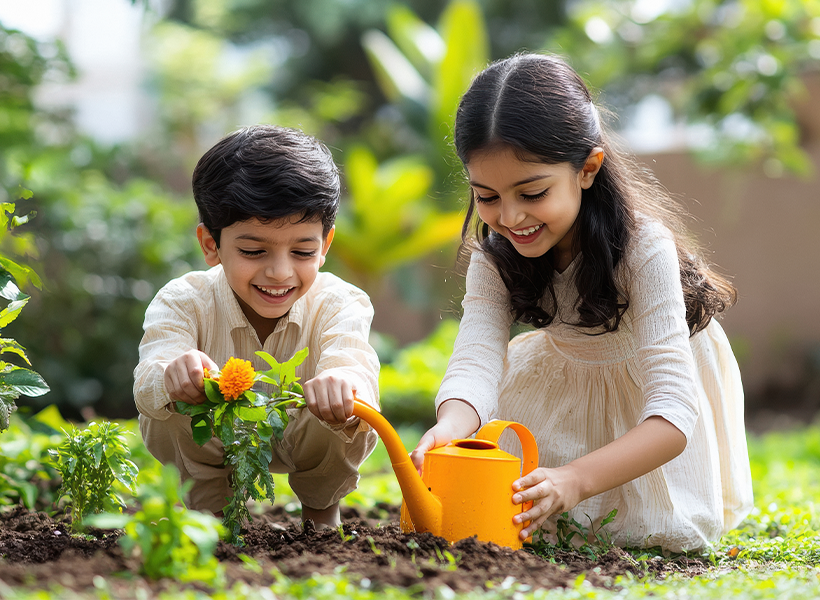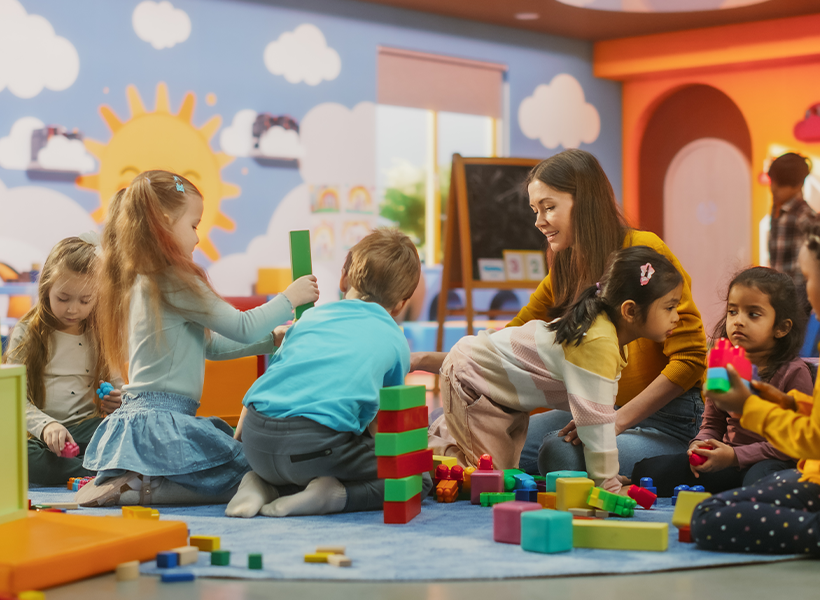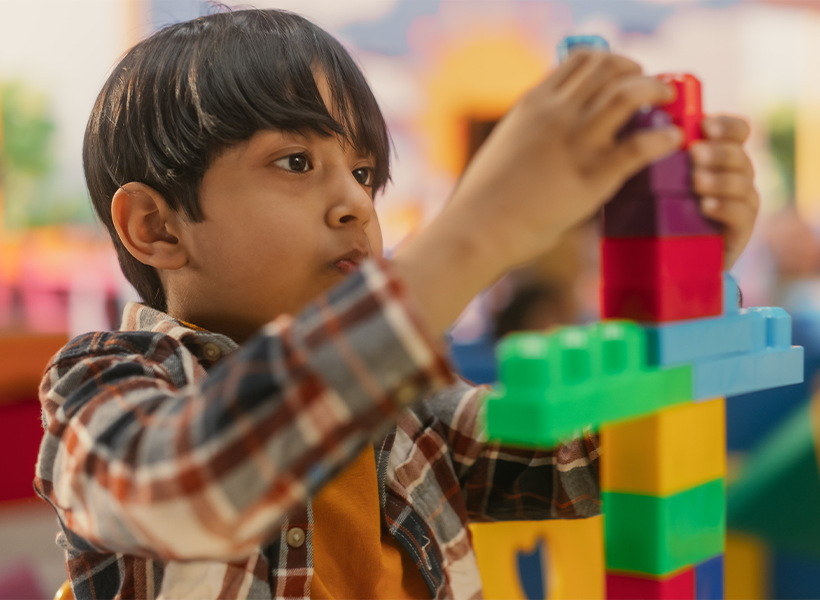Outdoor Exploration : Daily activities include nature walks, gardening, and observation of plants and animals to spark curiosity and appreciation for the environment.
Sustainability Projects : Simple eco-friendly practices like recycling, composting, and upcycling craft materials are introduced to teach environmental responsibility.
Theme-Based Learning : Units like "Life in a Forest," "Seasons and Weather," and "Water Wonders" help children learn about natural phenomena in interactive ways.
Implementation Strategies
Nature Corners : Classrooms will feature mini-gardens or terrariums for hands-on interaction with plants and animals.
Eco-School Practices : Encouraging green initiatives such as waste segregation, water conservation, and planting trees during school events.
Field Trips : Visits to parks, farms, and natural reserves will provide experiential learning opportunities.


Individualized Learning Plans (ILPs): Teachers assess each child's learning style, strengths, and areas for improvement to create a tailored approach.
Life Skills Education: Activities like role-playing, storytelling, and group discussions promote empathy, problem-solving, and communication skills.
Emotional Well-Being Activities: Mindfulness practices such as yoga, breathing exercises, and circle time discussions focus on emotional resilience and self-regulation.
Implementation Strategies
Small Class Sizes: A low teacher-to-student ratio ensures personalized attention and support.
Parent Engagement: Regular workshops and meetings to align home and school nurturing approaches.
Mentorship and Guidance : Dedicated mentors for each child provide consistent encouragement and celebrate achievements.
Creative Expression Art, music, dance, and storytelling are embedded into daily routines to cultivate imagination and innovation.
STEAM Learning: Simple science experiments, building blocks, and tech-free coding activities foster critical thinking and problem-solving.
Physical Development: Structured play, yoga sessions, and physical education classes ensure motor skills development and physical fitness.
Implementation Strategies
Healthy Eating Habits : Providing nutritious meals or snacks and teaching children about balanced diets through interactive activities.
Wellness Routines : Incorporating rest periods and relaxation techniques into daily schedules.
Skill-Based Workshops : Regular sessions on self-care, teamwork, and community-building to prepare children for real-life challenges.

By combining Nature, Nurture, and Nourish, our N³ Methodology ensures that children grow into well-rounded individuals who are emotionally resilient, intellectually curious, and socially responsible. This approach not only lays the foundation for academic success but also instills lifelong values and skills.
